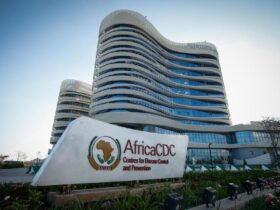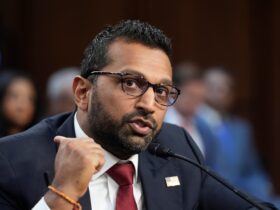Negotiations between SpaceX and the South African government regarding the licensing of Starlink services have reached an impasse, delaying the company’s entry into the country’s telecommunications market.
The discussions have stalled primarily due to regulatory requirements that mandate a minimum 30% local ownership by historically disadvantaged South Africans, a condition SpaceX has challenged.
The deadlock follows a public exchange in which Elon Musk, CEO of SpaceX, criticised South Africa’s ownership laws, referring to them as “openly racist.”

His remarks have added to the ongoing debate over the country’s Black Economic Empowerment (BEE) policies and their impact on foreign investment.
the country’s telecommunications sector operates under a licensing framework designed to promote economic transformation and inclusion. One of its key provisions requires companies operating in the industry to have a minimum of 30% local ownership by historically disadvantaged individuals. This rule applies to all telecommunications providers, including satellite operators such as Starlink.
SpaceX, however, has raised concerns that this requirement makes it difficult for international companies to enter the market. Instead of direct shareholding transfers, the company has proposed an alternative model known as “equity equivalence,” which would allow it to contribute to South Africa’s socio-economic development through other means. This could include investments in infrastructure, skills development programmes, or other initiatives that align with the country’s transformation agenda.
The South African government has remained firm in its position, with President Cyril Ramaphosa’s spokesperson, Vincent Mangwenya reiterating that the country would not alter its policies solely to accommodate foreign investors.
The government argues that local participation in high-value sectors such as telecommunications is necessary to ensure broader economic inclusivity.
READ MORE: https://parallelfactsnews.com/leaked-memo-expose-lagos-assembly-invite-dss/
This approach has been a defining feature of South Africa’s post-apartheid economic strategy, aiming to redress historical disparities in ownership and access to economic opportunities.
Starlink’s proposed entry into South Africa has been highly anticipated, particularly in rural and underserved areas where internet access remains limited. The company’s satellite-based internet services have been praised for their ability to deliver high-speed connectivity to remote regions, an area in which South Africa has struggled to make significant progress.
Many of the country’s rural communities continue to rely on outdated infrastructure, with limited broadband availability and unreliable service quality. The potential for Starlink to bridge this digital divide has therefore generated considerable interest among consumers and industry observers.
While Starlink has been rapidly expanding its footprint across Africa, securing approvals in countries such as Mozambique and Nigeria, South Africa’s regulatory framework has presented a unique challenge.
The licensing requirements, which are among the strictest in the region, have created significant barriers for foreign companies seeking to operate in the country. Some industry analysts have suggested that South Africa’s approach may discourage foreign direct investment in its telecommunications sector, particularly as neighbouring countries adopt more flexible regulatory frameworks.
SpaceX’s decision to withdraw from public hearings on South Africa’s proposed new licensing framework further underscores the complexities of the negotiations.
The company’s absence from these discussions signals its reluctance to engage with regulators under the current conditions, raising questions about whether it will pursue an alternative strategy or ultimately abandon its plans for the South African market.
If SpaceX does decide to disengage entirely, it may reinforce perceptions that South Africa’s regulatory environment is challenging for foreign technology firms.
Despite the current stalemate, there is still potential for negotiations to resume if both parties can find common ground.
For now, Starlink’s expansion into South Africa remains uncertain, caught between regulatory constraints and the country’s broader economic transformation agenda.
Follow the Parallel Facts channel on WhatsApp: https://whatsapp.com/channel/0029VaCQSAoHgZWiDjR3Kn2E









Leave a Reply